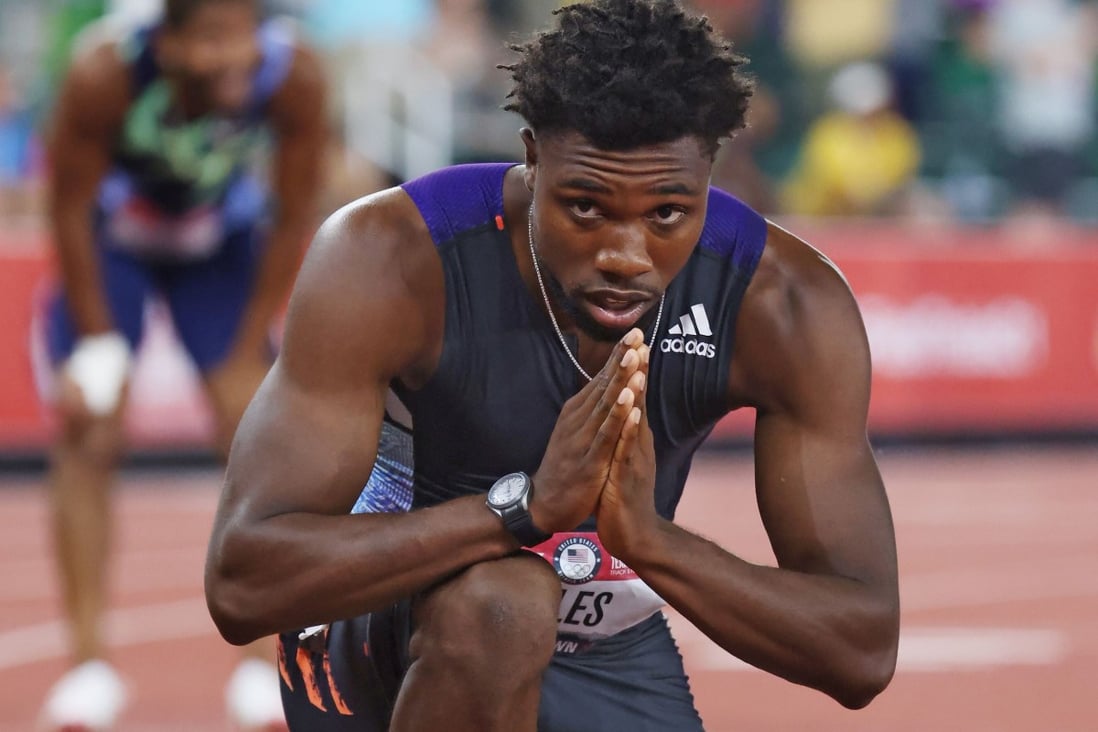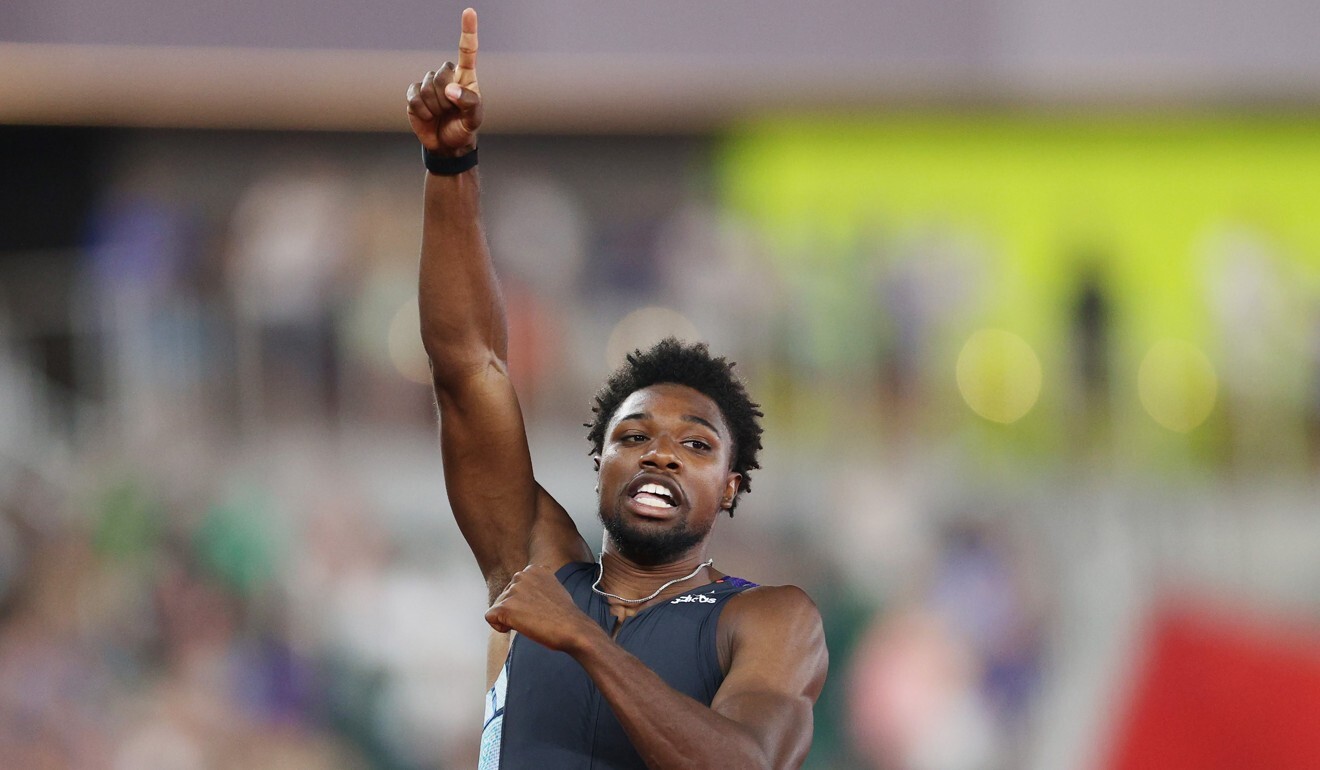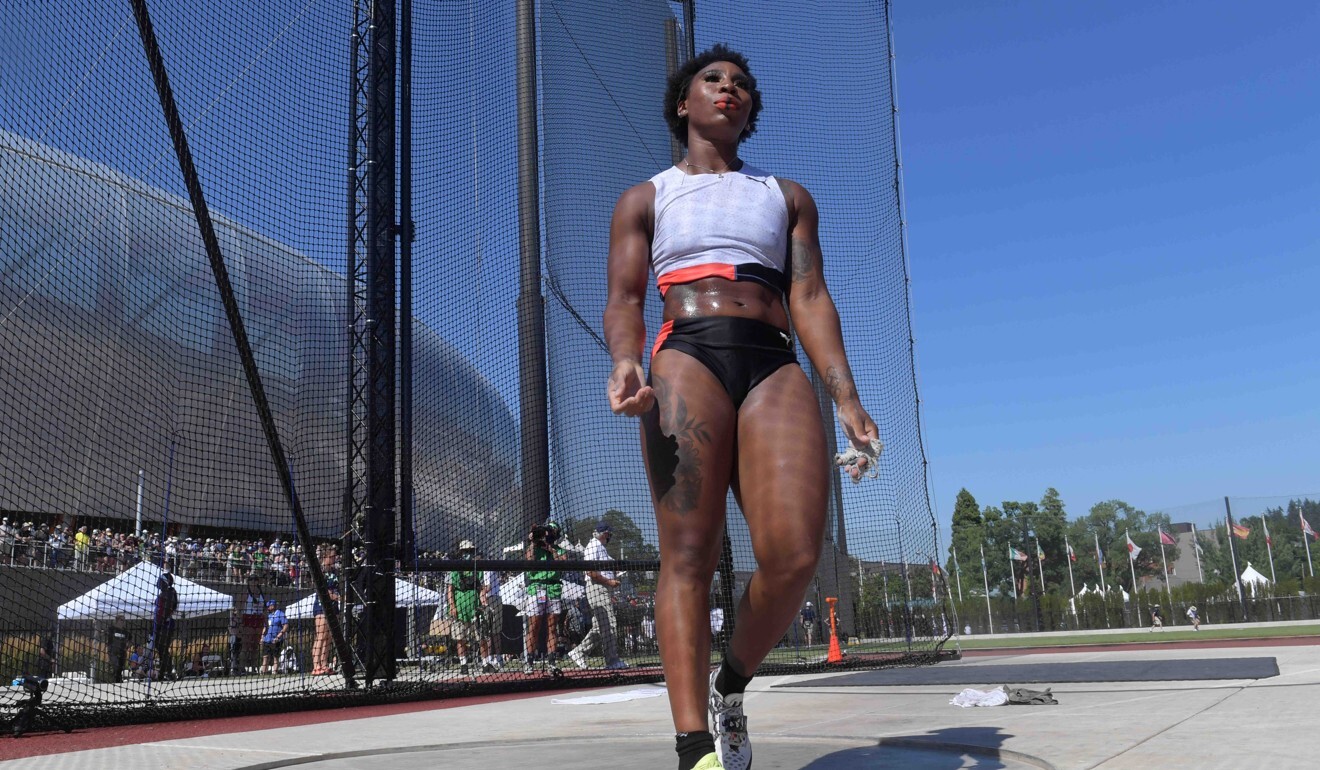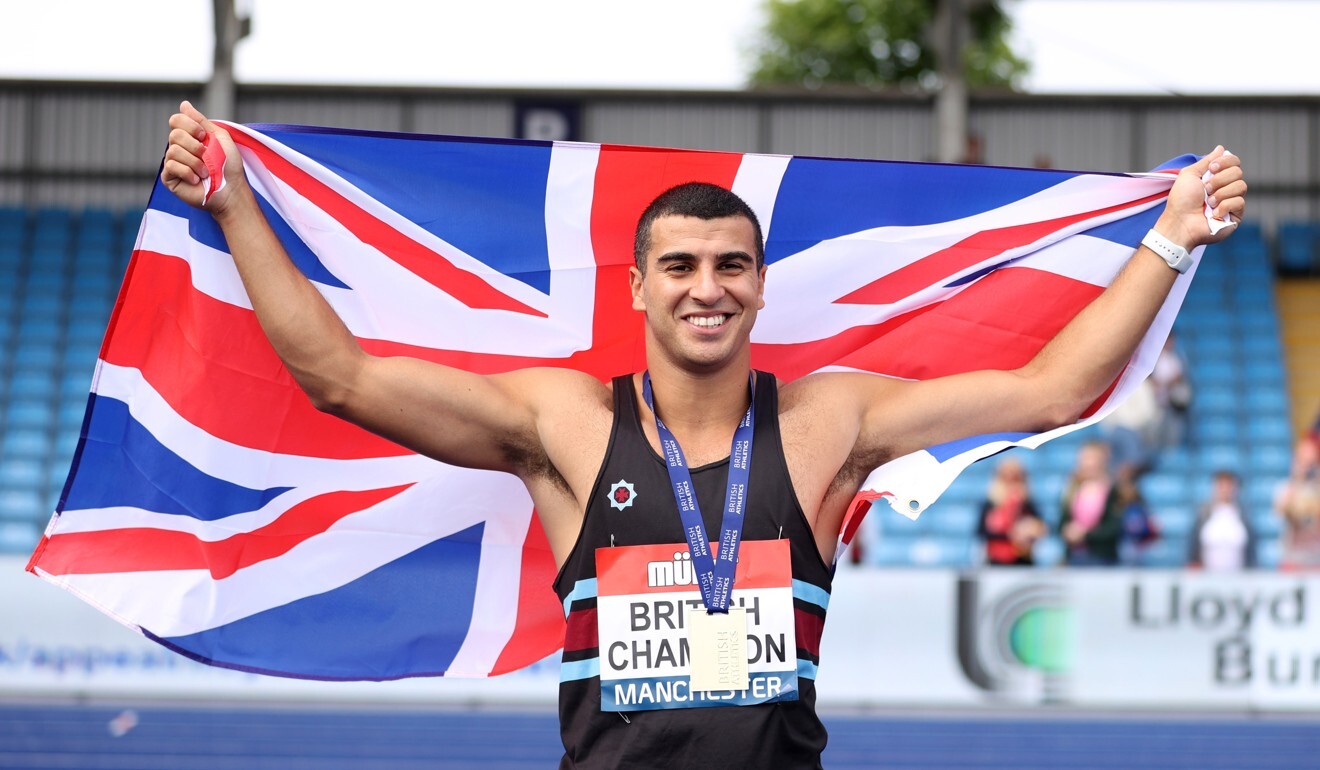
Follow our live coverage of day two of the Tokyo Olympics here.
Although the International Olympic Committee has quietly watered down its controversial Rule 50 after a serious backlash, it still gives athletes a chance to break it. The blanket rule previously stated “no kind of demonstration or political, religious or racial propaganda is permitted in any Olympic sites, venues or other areas” but has now been walked back significantly, and outlines a number of venues and avenues where athletes can sound off if they so choose.
As usual with the IOC, the guidelines are now murkier than ever, as Rule 50.2 of the Olympic Charter, as put forth by the IOC’s Athletes’ Commission, states athletes can express their views on the field before play, in media interviews, on social media and during athlete introductions, within reason, as long as it does not distract another athlete, or is targeted at any one person or specific group. It says yes to a number of previously banned things, but it’s in the omissions where Rule 50 (which was first drawn up in 2019, and has since been revised three times) still remains a serious question mark.
However, athletes are not allowed to make statements during medal ceremonies where national anthems are played, the opening and closing ceremonies, during competition and in the Olympic Village.
Euro 2020, which just took place all over Europe, probably gave us our best bellwether heading into Tokyo 2020, as football players took a knee before kick-off, which at times was met by boos from fans. Athletes will surely kneel before games and competitions at Tokyo 2020, in a variety of sports from football and basketball to track and field and swimming, but who will take their message onto the podium?
Here are five athletes, who if given the chance could still break Rule 50 and force the IOC to either bring forth “disciplinary consequences”, according to the Olympic Charter, or lie down and render the controversial rule completely toothless.

Noah Lyles
The American sprinter, who will make his Olympic debut in the 200 metres, raised a black-gloved fist while bowing his head during a race in Monaco last August. The outspoken 23-year-old African-American, who is a Black Lives Matter champion, has also used media interviews after events to highlight racial injustice in the United States.
Before the 100-metre final at the Olympic track trials in Eugene, Oregon, in June, he raised his fist again, which evokes the image of American sprinters Tommie Smith and John Carlos at the 1968 Mexico City Olympics and the “Black Power Salute”. As the reigning world champion, Lyles is one of the favourites to win gold, so the possibility of him getting onto the podium where he could break Rule 50 during The Star-Spangled Banner, is high.
Gwen Berry
The American hammer thrower already caused a stir when she turned her back on the American flag during The Star-Spangled Banner at the same US Olympics trials in which Lyles competed. Berry, who previously raised a fist at the 2019 Pan American Games, was punished by the US Olympic and Paralympic Committee (12 months’ probation). She is not a favourite in the event but will still get more than a few chances to break Rule 50.
One of the oddest updates to Rule 50 was its apparel guidelines, as athletes are now permitted to wear certain generic slogans like “peace”, “solidarity” and “equality”, but not while competing, and the one that is not allowed is the only one that matters – “Black Lives Matter”. After Berry turned her back on the podium at the trials, she then held up a T-shirt that read “Activist Athlete”. Berry received a fair amount of backlash for her actions at the trials, so it remains to be seen if she will carry over with the controversy at Tokyo 2020.

Adam Gemili
The British sprinter has already made his intentions clear, and this was before Rule 50 was relaxed. In an interview with the BBC he said he will take a knee in support of the Black Lives Matter movement if he gets onto the podium.
“I’d definitely protest,” he said. “I think it’s a place where you should be allowed to express your opinion. I’d be very hypocritical if I’ve been talking all this talk and I wouldn’t do that myself … This is what I don’t understand, the IOC are so quick to use Tommie Smith, the picture of him, fist raised, but then they are saying actually, no one is allowed to do that.
“It doesn’t make sense to me. I don’t think you can ban an athlete for protesting and if they do all hell would break loose and it could go south and sour very quickly. They will be very naive to even try to do that.”
He will compete in both the 200-metre sprint, where he could potentially medal, and be a part of Great Britain’s 4x100m relay team.

Chelsea Wolfe
The 28-year-old is an alternate for the US BMX freestyle team, which means she will only compete if another competitor gets injured. A transgender woman, Wolfe wrote on a since-deleted Facebook post from 2020 that “my goal is to win the Olympics so I can burn a US flag on the podium. This is what they focus on during a pandemic. Hurting trans children”.
Wolfe, who had posted an article about the treatment of trans girls in March of 2020 while Donald Trump was president, clarified her position in an interview with Fox News.
“One of the reasons why I work so hard to represent the United States in international competition is to show the world that this country has morals and values, that it’s not all of the bad things that we’re known for,” she said. “I take a stand against fascism because I care about this country and I’m not going to let it fall into the hands of fascists after so many people have fought and sacrificed to prevent fascism from taking hold abroad.”
US men’s basketball team
This is a serious wild card when it comes to Rule 50. The US men’s team, which is made up of 12 high-profile National Basketball Association players, including superstar Brooklyn Nets forward Kevin Durant, have already been a part of a political sea change in their home league. When the NBA returned from the pandemic in July, “Black Lives Matter” was etched across half court, players could choose from slogans to replace their names on their jerseys, and they regularly knelt during The Star-Spangled Banner.
Durant and company will most likely be focused on winning gold, but these are multimillionaire athletes who previously stood up to the NBA, their employers, so to bow to the IOC is highly unlikely.
An interesting thing of note is the US Olympic and Paralympic Committee has also drastically shifted their stance. While they punished Berry in 2019, along with American fencer Race Imboden, they updated their position before the US Olympic Trials, stating athletes can take a knee, or raise a fist, on the podium, but have yet to release any statement concerning Tokyo 2020.
On top of all this, multiple athlete groups, player unions and law firms have already stated they are willing to offer legal support to any athlete that breaks Rule 50 and is subsequently punished by the IOC.







